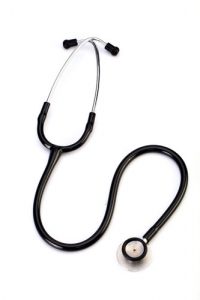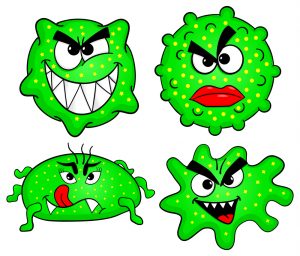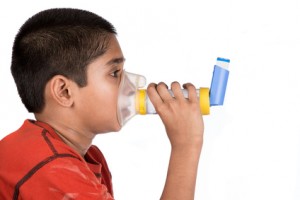How Can You Minimize Stress During Pregnancy?
 If you are pregnant, the advice you see on the internet can be overwhelming. There are so many things you “must do” and so many things you “must avoid” if you want a healthy baby. It’s enough to stress you out.
If you are pregnant, the advice you see on the internet can be overwhelming. There are so many things you “must do” and so many things you “must avoid” if you want a healthy baby. It’s enough to stress you out.
As if that weren’t bad enough, we are probably living through the most stressful period in recent memory. So, the last thing you want to hear is that your stress during pregnancy can affect the health of your baby.
Before I go any further, let me make it clear that the studies I will discuss in this issue of “Health Tips From the Professor” are intriguing, but they are preliminary. I don’t want to add to your stress.
Let me start by reviewing the literature:
- Several studies suggest that stress during pregnancy is associated with preterm birth, low birthweight, and infant mortality.
- Other studies suggest that stress during pregnancy is associated with suboptimal cognitive development, hyperactivity, and asthma in the offspring.
The big question, of course, is how a mom’s stress during pregnancy can affect the health of her child months or years later. One hypothesis is that stress affects the mom’s gut bacteria, and those gut bacteria are passed along to the child as he or she passes through the birth canal.
We know that stress can affect your gut bacteria, but can it affect your child’s gut bacteria? Studies in mice suggest it can. Today I will discuss the first large clinical study (AK Aatsinki et al, Pyschoneuroendocrinology, 119 (2020) 104754) designed to evaluate that hypothesis in humans.
How Was This Study Done?
 This study was an offshoot of an ongoing FinnBrain Cohort Project, which aims to study the influence of stress exposures during pregnancy on later childhood development and health outcomes. This particular study was designed to investigate the role of chronic stress during pregnancy on the population of gut bacteria in infants. There were 399 mothers and their babies who completed this study.
This study was an offshoot of an ongoing FinnBrain Cohort Project, which aims to study the influence of stress exposures during pregnancy on later childhood development and health outcomes. This particular study was designed to investigate the role of chronic stress during pregnancy on the population of gut bacteria in infants. There were 399 mothers and their babies who completed this study.
All Participants in the FinnBrain Project:
- Filled out self-reported prenatal questionnaires at gestational weeks 14, 24, and 34. These questionnaires provided background information about the health, weight, age, and education level of the moms, as well as whether they were taking antidepression medications during their pregnancy.
- Were also asked about breast feeding 2.5 months after giving birth.
- Duration of gestation, birth weight, and method of delivery information were obtained from Finland’s National Institute for Health and Welfare.
Participants in this study:
- Were evaluated for depression and anxiety symptoms three times during pregnancy and at 3 months after giving birth. It should be noted that the questionnaires used to evaluate depression and anxiety symptoms did not measure the stressors (events causing the stress). Instead they were measuring the mom’s response to those stressors.
- Cortisol levels were measured at gestational week 24 as another measure of the mother’s stress level.
- Fecal samples were obtained from the offspring at the age of 2.5 months and analyzed for the population of gut bacteria.
Could Mom’s Stress Affect Her Baby’s Health?
 The results of this study were intriguing:
The results of this study were intriguing:
Infants born to mothers who experienced high levels of stress (such as depression and/or anxiety) during pregnancy had an increased abundance of potentially pathogenic gut bacteria such as:
- Serratia, Haemophilus, Citrobacter, and Campylobacter from the Proteobacteria group of bacteria.
- Veillonella and Finegoldia from the Firmicutes group of bacteria.
In addition, infants born to mothers with elevated cortisol levels (another measure of stress) had decreased abundance of potentially health promoting gut bacteria such as Lactobacillus.
In contrast:
- Infants born to mothers who experienced low levels of stress had increased levels of potentially health promoting gut bacteria, such as Akkermansia.
- Infants born to mothers with low cortisol levels had an increased abundance of Lactobacillus in their gut.
In short:
- High levels of stress in the mother during pregnancy are associated with an increased abundance of unhealthy bacteria in their baby’s intestine.
- Low levels of stress in the mother during pregnancy are associated with an increased abundance of healthy bacteria in their baby’s intestine.
The authors concluded:
“The observed fecal bacteria signature in the infants with exposure to chronic maternal stress, such as increased abundance of potentially inflammatory bacteria from the Proteobacteria group of bacteria, warrant future follow-up of these children, since similar alterations of fecal bacteria have previously been associated with adverse health outcomes such as asthma in children.
The results of this study describe only associations, yet corroborate certain interesting findings reported in earlier literature and offer hypotheses for future mechanistic studies.”
How Can You Minimize Stress During Pregnancy?
 Simply put, this study shows that chronic stress during pregnancy increases populations of gut bacteria in the newborn that are associated with adverse health outcomes in children. More studies are needed to confirm and understand this observation, but it raises an issue that is often ignored.
Simply put, this study shows that chronic stress during pregnancy increases populations of gut bacteria in the newborn that are associated with adverse health outcomes in children. More studies are needed to confirm and understand this observation, but it raises an issue that is often ignored.
Pregnancy can be a stressful time, especially if you are a first-time mom. Plus, we are living in the most stressful time any of us can remember. So, this study is particularly relevant today.
However, let’s put this into perspective. It’s not the stress in our lives that harms us. It is how we respond to the stress. This study did not measure stress, per se. It measured depression, anxiety, and cortisol levels associated with the stress.
Some of the women in this study had very low levels of all three. It wasn’t that they led stress-free lives. They simply coped better with stress. So, the real question isn’t how to minimize stress. It’s how to better cope with stress. Here are some suggestions.
1) Take time to relax. What you do with this time will be different for each of you. Think about what kind of activity relaxes you the most. Here are some suggestions.
-
- Meditation or prayer.
-
- Yoga or Tai chi.
-
- Watching a comedy.
-
- Listening to your favorite music.
2) Make time for hobbies. Again, these would be different for each of you. They should be something that you enjoy and engages your mind. Examples include:
-
- Reading.
-
- Creating your favorite art. It could be painting, pottery, or knitting, for example.
-
- Playing your favorite sport such as golf or tennis.
-
- Doing puzzles.
-
- Playing cards or board games.
-
- Watching a movie.
3) Exercise on a regular basis. Exercise produces endorphins that elevate your mood. It’s even better if you are exercising outdoors so you can enjoy nature or listening to your favorite music while you exercise.
4) Relax your muscles. This is particularly important after you have exercised. Examples include:
-
- Do some stretching exercises.
-
- Take a luxurious hot bath.
-
- Set a regular time to go to bed and get a good night’s sleep.
-
- Get a massage.
5) Eat a healthy diet. Studies have shown that people who eat lots of junk and processed foods tend to be depressed and anxious. Aim for a whole food diet with lots of fruits and vegetables. That kind of diet is best for your baby as well.
6) Try deep breathing exercises.
7) Ask for support from your family members, especially if they are stressors in your life.
8) Talk with someone. Find a friend or family member who is willing to listen and support you.
In short, take care of yourself. Don’t let stress affect your health and the health of your baby.
The Bottom Line
Pregnancy can be a stressful time, especially if you are a first-time mom. Plus, we are living in the most stressful time any of us can remember. That is why a recent study is particularly relevant.
Simply put, the study showed that chronic stress during pregnancy increases populations of gut bacteria in the newborn that are associated with adverse health outcomes in children. More studies are needed to confirm and understand this observation, but it raises an issue that is often ignored.
However, let’s put it into perspective. It’s not the stress in our lives that harms us. It is how we respond to the stress. This study did not measure stress, per se. It measured depression, anxiety, and cortisol levels associated with the stress.
Some of the women in this study had very low levels of all three. It wasn’t that they led stress-free lives. They simply coped better with stress. So, the real question isn’t how to minimize stress. It’s how to better cope with stress.
For more details and a discussion on how to cope with stress, read the article above.
These statements have not been evaluated by the Food and Drug Administration. This information is not intended to diagnose, treat, cure, or prevent any disease.

